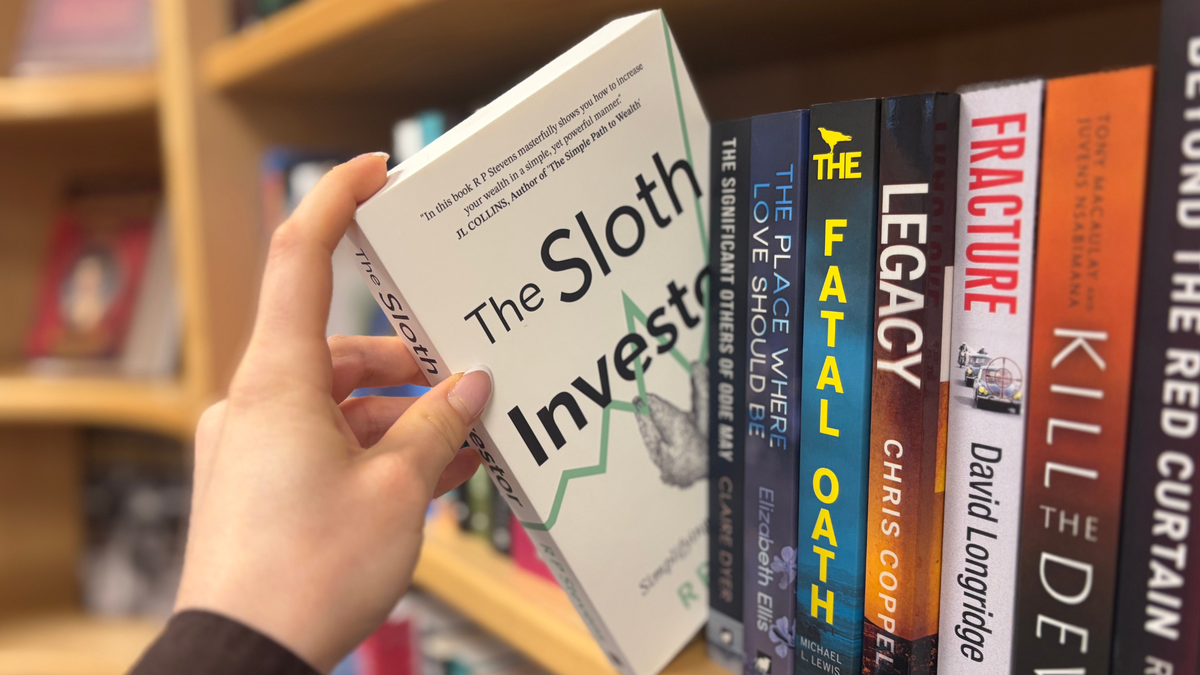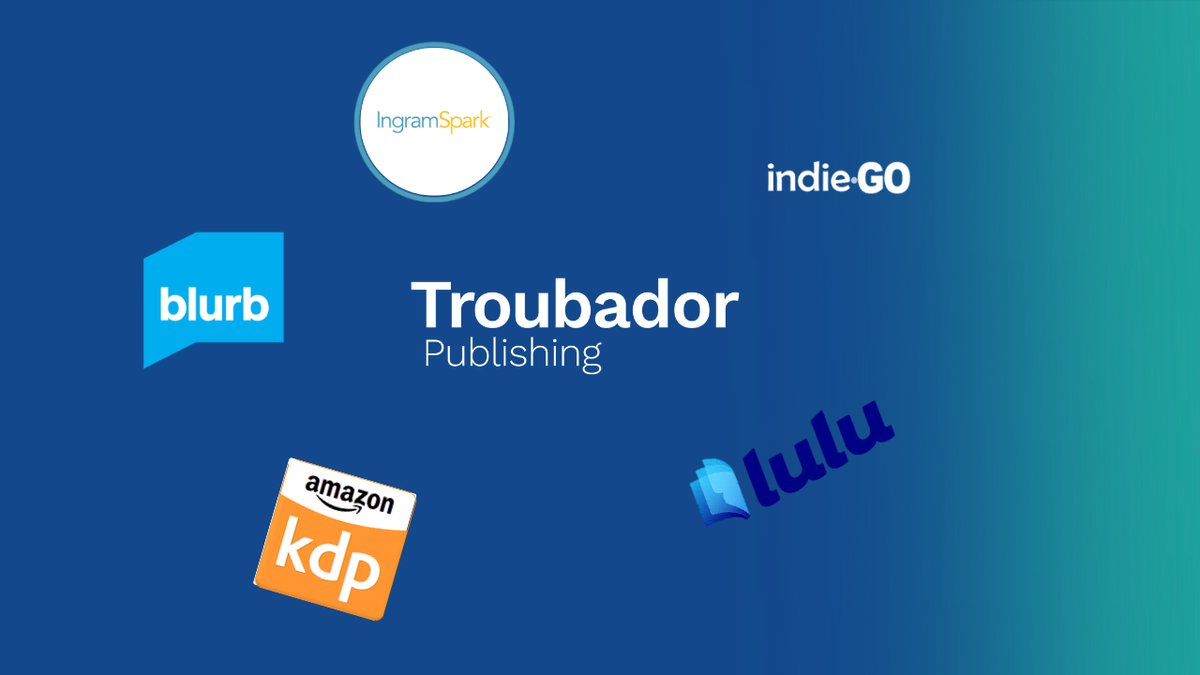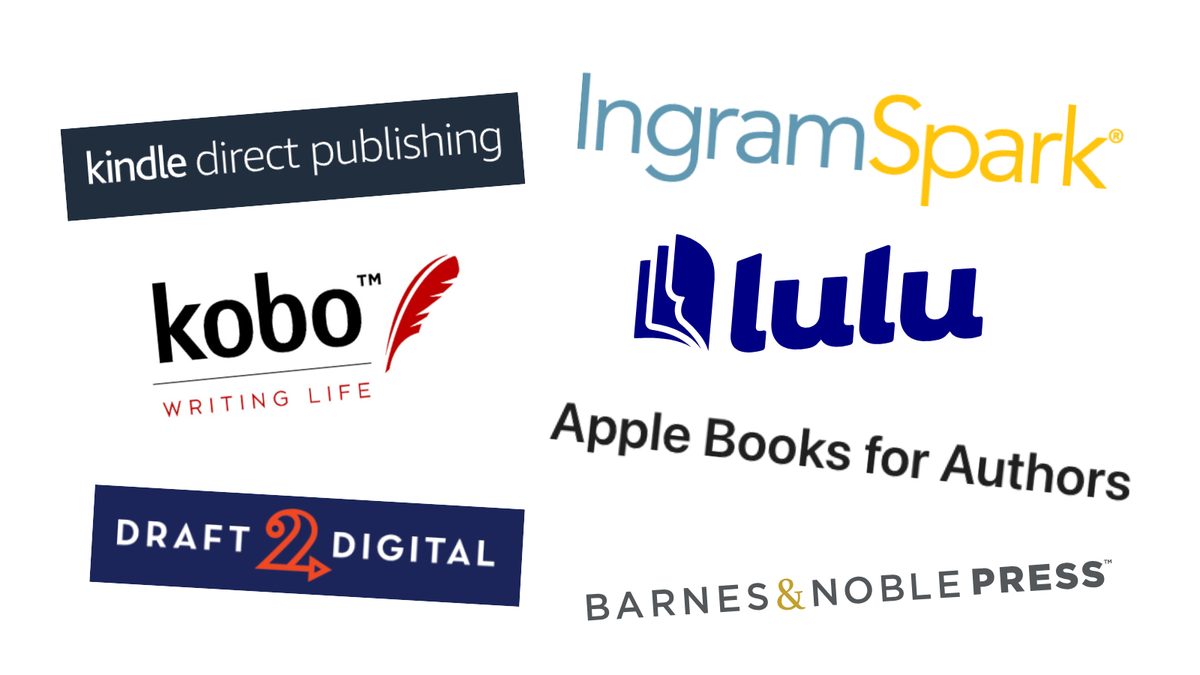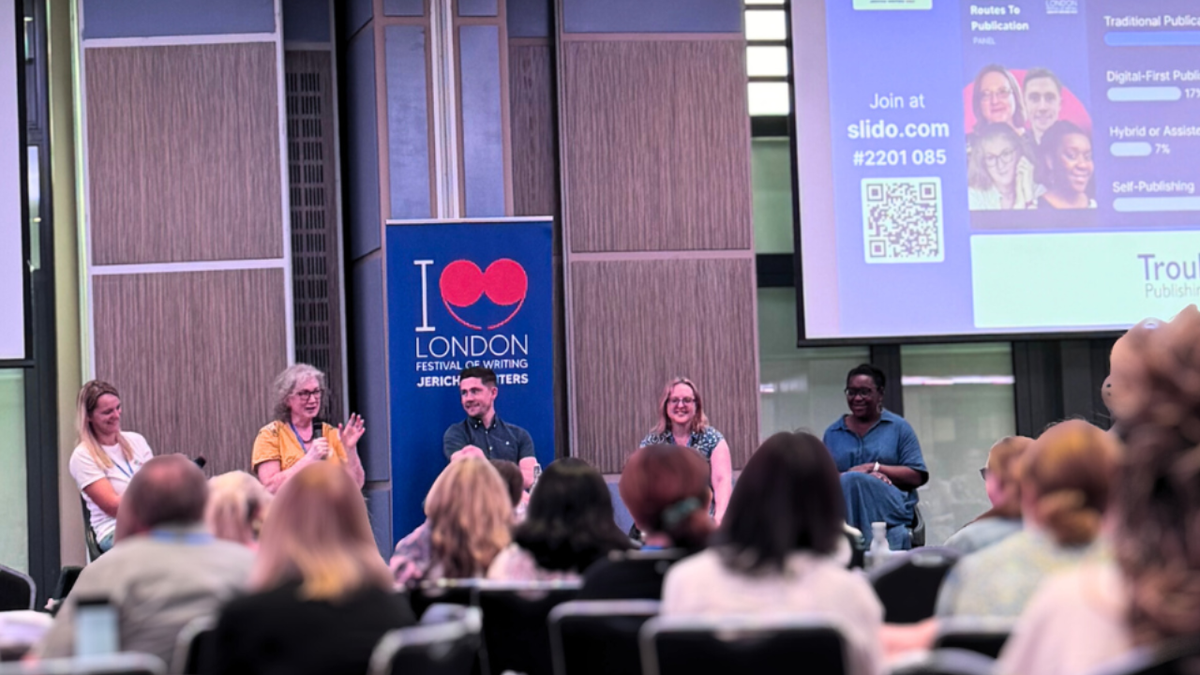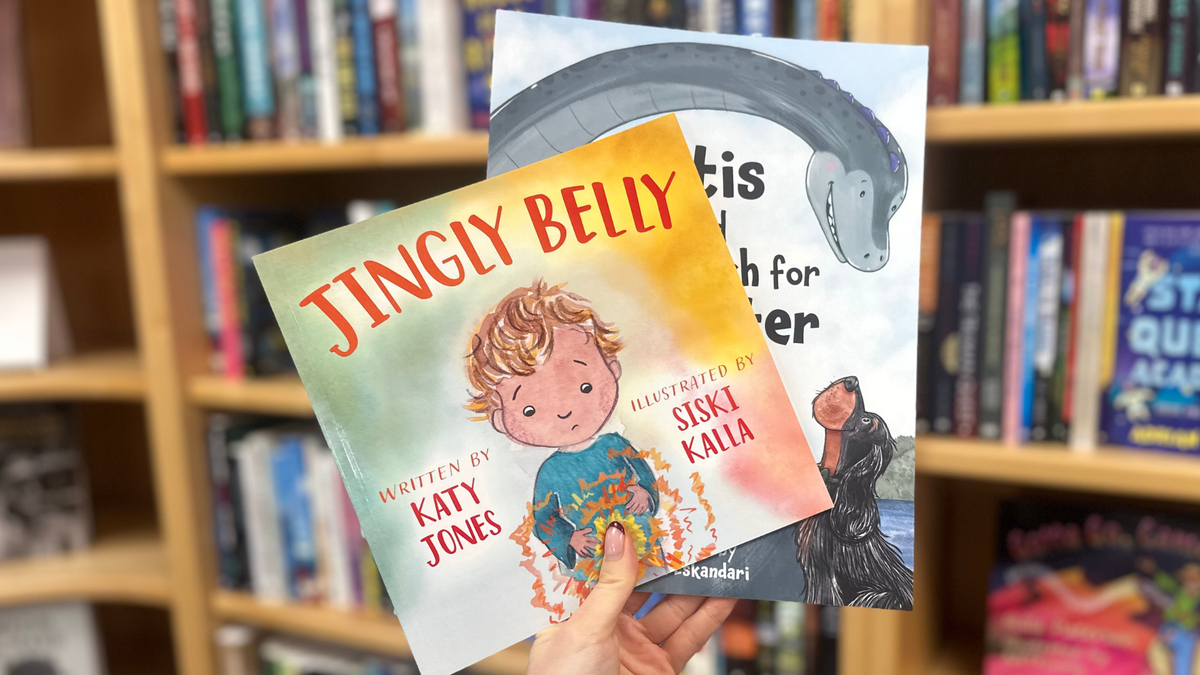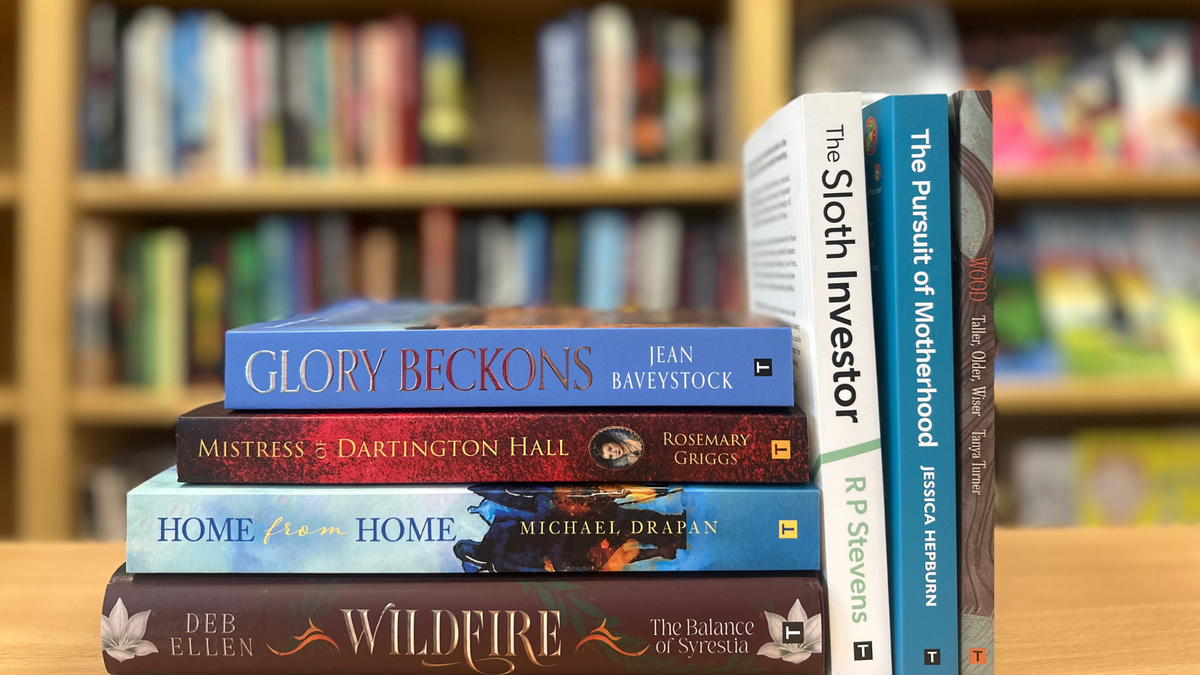
18th September, 2024
12 min read
The Top 10 Questions You Need to Ask Your Self-Publishing Company
Written by:
Alex Thompson
Choosing the right self-publishing company is critical for any aspiring author looking to achieve their self-publishing goals. With so many options available for an author, it’s essential to do your homework before committing to a partnership with a third party, whether that be a full-service publisher like Troubador, a specialist organisation or individual freelancers who will help bring your project to life.
Self-publishing can offer incredible opportunities for creative control, faster timelines, and better royalty splits, but not all companies provide the same level of service, transparency, or support. To avoid unexpected costs or compromises on your vision, you need to ask the right questions upfront.
In this article, I’ll explore the top 10 questions that I think you should ask any self-publishing company before signing a contract and that they should be completely comfortable with answering. These questions will help ensure you know exactly what to expect in terms of costs, royalties, distribution, marketing, and more. Whether you're publishing your first book or your tenth, this article will guide you toward making an informed decision and help you get the most out of your self-publishing journey.
1. What services are included in the publishing package?
First things first, understand what it is that the company can do for you. Self-publishing companies can often not do a great job of being clear about what they can and can’t provide on their websites, so don’t be afraid to call them up and get them to walk you through it in detail. Ensure you understand exactly what you're paying for, including editing, cover design, formatting, and marketing.
Self-publishing a book is a very complicated process, and the pressure of completing all the steps correctly is on the shoulders of the author if they choose to source only a few elements of the process from companies or freelancers. For example, an author who has chosen to manage the metadata for their book, design the cover and upload to Amazon KDO will still need help to typeset and design to text of the book, create upload-ready files and do the marketing for it. As such, authors should also try to understand how all those elements will fit together with you as the author managing some and a company managing others.
Alternatively, those authors looking to have assistance with the whole publishing process will have less pressure on themselves to do everything right, but they should be even more diligent with understanding what services a publisher can and will be completely for them long before they sign a contract. Some companies allow authors to book free consultations before they sign a contract to understand what services they can provide, and I would always recommend that an author spends the time talking with a publisher to know whether they are right for you or not.
2. What are the total costs and potential hidden fees?
Let’s get one thing out in the open early on: if an author is not going to complete the whole publishing process themself then they will incur a financial cost. Whether it is paying a freelancer to design a cover, a publisher to manage the whole process or something in between, outsourcing any of the thinking or work to a third party will result in financial investment.
So, an author needs to ensure that they completely understand the financial commitment, including upfront fees and any ongoing or additional costs, long before they are considering signing a contract. When it comes to asking about costs, any company that you are considering working with should be transparent, proactive and open when talking about costs. If you get any hints of them hiding costs from you, not giving you the full story or saying that after you sign a contract a final amount will be given to you, run!
Ideally, companies should have their pricing on their website, even if just as a guideline, for authors to be able to see at a glance whether they are right for you or not. If not, or if you want more information, speak to them. Based on what you know about your project and what you want to achieve, challenge a publisher about what you will get from the price you pay. Understand what is guaranteed (for example we always guarantee the highest quality printed book for all our authors) and what is not (for example, we would never guarantee that an author will make all their money back) for the money you are paying, and be sure that you are happy taking any financial risk, big or small, in the pursuit of publication.
3. How much control will I have over the creative process?
One of the biggest reasons that more and more authors are opting for self-publishing, creative control is crucial for a self-published author. Anything less than total creative control is not good enough in my opinion, and authors should expect nothing less. Of course, some authors may not want to have all the creative control if they feel uncomfortable doing so. For example, I would feel very uncomfortable designing my front cover, and I would significantly prefer telling an expert designer what I am looking for and having them create something on my behalf.
However, even if you do outsource the thinking and actioning of some or all of your project parts to a company, ultimately the decision on what makes it through to publication should be yours alone. Of course, you may well want to take advice from companies on what they think is best – we advise authors every day on what the market wants, what good typically looks like and how we would do something – but the final decision and approval should be up to you. So don’t hesitate to challenge a company you are thinking of getting help from and ensure that this is the case.
Clarify the level of involvement you'll have in decisions about cover design, interior layout, and content edits.
4. What is the royalty structure and how will I be paid?
For those authors that are wanting to sell as many copies of their books as possible, understanding how the royalties process a company goes through is crucial. Of course, if you are publishing through Amazon KDP or another online platform that you are managing then you’ll need to understand how that works for yourself, but if you are using a publisher that will manage the sales and distribution of your book for you then you need to know what to expect regarding your royalties.
The first thing to understand is how royalties are worked out. This varies from publisher to publisher, but for books that we distribute on behalf of authors, they will be paid all net receipts after the retailer discounts and Troubador’s small distribution fee. Retailer discounts vary in size, but author royalty rates when a book is sold through Trouabdor will almost always be more lucrative for the author than that of a book sold through a traditional publisher.
Every publisher will work in different ways, and you can read more about our process on our website. However, as an example of how a royalty process works, Troubador runs through eh royalty process quarterly, paying authors any royalties due and carrying over any sales into the next sales period if required. Authors can see the royalty and stock status of their book(s) on our unique Troubador Hub and can download previous royalty statements from the same place. Once statements are generated, royalties are then paid by bank transfer within a few weeks of generation.
In short, authors need to know how royalties are worked out, the percentage the company takes for each sale through the various channels it will be available and the frequency of those royalty payments.
5. What distribution channels will be used for my book?
When self-publishing, understanding the distribution channels your book will be available on is crucial to your sales success. Your book being available through the right channels can significantly impact your book’s visibility and, as a result, sales. It’s important to ask your self-publishing company about both physical and digital distribution options.
For physical distribution, inquire whether your book will be available in brick-and-mortar bookshops and how that process works. The reality is that very few self-publishing companies can get books into bookshops, especially if they are print-on-demand o digital-only publishers. Troubador is one of the few that can get books into bookshops and is the only self-publishing company in the UK to have a direct distribution relationship with the Waterstones group. As well as the national bookshops, ensure that if bookshop stocking is a goal for you then that company has existing relationships with local bookshops, as we do with many hundreds. For those who are less interested in bookshop stocking but still want physical copies of their book, you will need to decide whether you still want to opt for a high-quality print run or print-on-demand only where you will get a lower-quality end product.
When printed stock exists that is not print on demand, you need to understand how the storage, distribution, sales return and invoicing process works. For authors using Troubador, the short answer is: that we handle it all for you from our in-house distribution centre. For other organisations that have a different set-up, you need to ensure that you understand how your books are stored, sold and distributed to the market.
On the digital side, it’s essential to ask if your book will be available on major platforms like Amazon, Apple Books, Kobo, Google Play Books etc. These platforms are critical for reaching global audiences and ensuring your book is accessible across various e-reader devices. Additionally, check if the company distributes subscription services like Kindle Unlimited or Scribd and, if not, understand what they can offer you instead.
6. How is the marketing and promotion handled?
Before your book is sold, it needs to be marketed. Book marketing is often the thing that authors are least excited about having to manage themselves due to the difficulty and competition that exists in the book publishing market, so the temptation to jump straight into outsourcing that to a company without doing your research is often very tempting. An author exploring how to market and promote their books needs to do as much research as they can ahead of enlisting help with promoting their book.
Typically book marketing falls into three categories: trade marketing, digital marketing and publicity.
Trade marketing is the discipline of making sure that the book is as visible to the book trade as possible, allowing them to discover, explore and purchase the book. While it can never guarantee sales, a company that can market the book to the trade in the best possible way will give that book the best possible chance of being noticed by book trade buyers.
When it comes to digital marketing, is the newest addition to book marketing. Digital marketing can refer to a myriad of different digital-only channels. Things like social media promotion, both organic and paid, are heavily used to promote books no as you’ll know, but make sure you know whether you can access other digital marketing tactics like NetGalley promotion or paid advertising.
Publicity refers to creating a buzz around the book, often ahead of or just after publication. That might take the form of an active publicity campaign, aiming to gain traction with media outlets like magazines newspapers and radio stations. Publicity comes in different shapes and sizes depending on the organisation running the campaigns and their capabilities, so be sure you know what you are getting (and what you aren’t!) before committing.
Whatever your requirements are for marketing, it is one of the most complex elements of self-publishing a book and is often overlooked, so make sure you know what you want well ahead of publication.
7. Will I retain the rights to my book?
Arguably the most important question on this list, and also the one with the most straightforward answer. Understanding how your rights will be owned after you sign a contract is crucial to ensure you are not signing up for something you are not aware of. An author absolutely must retain ownership of their rights when self-publishing their book – it’s one of the main benefits of self-publishing your work in the first place!
If you aren’t sure whether you will own the rights to your book post-publication then consult a trade union like the Society of Authors to advise you on what your contract means before signing it.
8. What support is provided after publication?
The assistance that self-publishing companies give authors after the book is published varies wildly from nothing at all to a lot. An author needs to know what to expect from the company they are using once the book has been published to know where their gaps might be.
From a support perspective, we feel that a publishing company, certainly one that has helped an author with the whole publishing process, should be available to an author post-publication to help answer questions, but available to assist and generally ensure that the experience that an author has is one where they feel supported and not left alone.
Of course, as mentioned above the royalties support post-publication should be structured and transparent with authors knowing exactly where they stand between publication and their next royalty statement. This applies to an author knowing what sales their book has made, too, as well as how much stock remains if they have had a bulk print run.
Many authors also want to have marketing support post-publication, too. The approach a publisher takes will vary again, so an author should make sure they know what they are going to get or not get post-publication.
9. What is the typical timeline from manuscript submission to publication?
This is a variable that will also wildly differ depending on what approach an author takes. For those going it alone, the publication process will take as little time as you can manage, whereas if you are using a full-service publisher that prioritises quality and customer experience over speed then you might be looking at 6 months. That is still significantly shorter than a traditionally published book where you might be looking at multiple years between manuscript submission and publication, but an author will want to ensure they know the timelines they should be expecting ahead of time, not least to allow them to plan any promotional activity they want to do around the launch of it
10. Do you have any success stories or testimonials from other authors?
And finally, authors should ask to see real-life examples of success stories of authors previously published. Not only will this help you validate your view as a publishing partner, but it will also teach you valuable lessons about what to do and what to avoid during your publishing journey.
Reviews are a way that you can self-serve these elements of finding success stories. Reviews posted online are a great way to see real-life feedback from authors who have used a service provider and have published their experience for other authors to see, so even if you don’t directly ask a publisher or self-publishing company this question, be sure to do your research to gauge a company’s track record and reliability from authors who have worked with them before.
Don’t be afraid to ask!
So there we go - the top 10 questions that I think authors who are exploring self-publishing companies should be asking. Of course, there are plenty more questions that you could and should be asking, but if you ask any then you absolutely should make it the above collection to protect your rights and ensure you get the best publishing experience possible.
Most importantly, even if you feel like you have found the answer somewhere, still make sure you ask these questions. Even if you know the answer, the way that a company answers the questions may tell you a lot about how they operate and how they want to work with authors. If they are open and honest then you can feel confident, if not then it will be harder for you and they may not be the right fit.
The Troubador team are here to help authors in any way that we can with no obligations, so please feel free to reach out to us if you have any questions (from the above or otherwise!) that you would like to get answers to.



